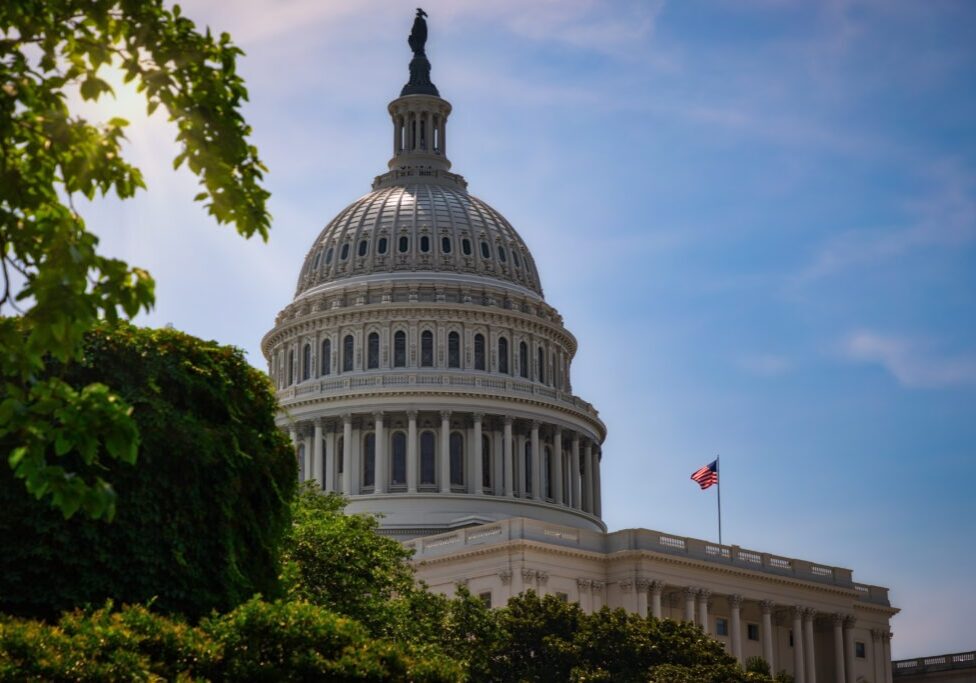President Donald Trump and his congressional allies want to shift large costs away from the federal government and onto state governments. While some states are better prepared than others to withstand these new costs, states like Louisiana would be hard-pressed to adapt. Wesley Tharpe and Meg Wiehe of the Center on Budget and Policy Priorities explain the vital role of the federal government in state budgets:
The federal budget includes considerable taxpayer dollars that are shared back with states and localities to deliver vital public services where people live and work. Composing about $1 of every $3 of state spending, these funds have a substantial impact on state economies and consumers’ costs for essentials such as groceries, health care, child care, and housing. Recent federal budget proposals, however, would shift significant costs, explicitly or implicitly, to states and localities by targeting health care, education, and food assistance.
Reality check: In 2024, Louisiana was the only state in the nation where the amount of federal funds spent exceeded spending from both the state’s general fund and other state funds.
Louisiana challenges rate cap for jail and prison calls
Louisiana is challenging a recent federal rule that capped high costs for phone and video calls from jails and prisons. Criminal justice advocates were quick to explain why this move would hinder efforts to reintegrate incarcerated people back into society. The Time Picayune | Baton Rouge Advocate’s Meghan Friedmann reports:
Often, phone calls and other types of inmate contact with the outside world are treated as “perks,” contended Bruce Reilly, who heads up Voice of the Experienced, a prison policy group run by formerly incarcerated people. The prison system may treat it like “tiramisu” for dessert, Reilly said, but “what the phone provides is a violence suppressor, a reentry program, a rehabilitation program, a parenting program…the best things that we could ever hope to get out of a prison experience,” Reilly argued. “The family is the number one reentry program.”
What happened the last time a president purged bureaucracy?
The Trump administration’s targeting of ‘disloyal’ federal workers and agencies is eerily reminiscent of the political purges of the 1950s to root out communism. But just as President Dwight D. Eisenhower left office in 1961, President Donald Trump and Elon Musk will ultimately have to relinquish the reins of power. Politico’s Clay Risen explains how the ill-sighted actions of the Red Scare were consequential and long lasting:
Seventy years ago, the reasonable pretext of hunting Soviet agents opened the way to a yearslong, paranoid campaign, motivated by outlandish conspiracy theories, that destroyed countless careers but did nothing to improve America’s security. Today, a stated desire to check the excesses of diversity, equity and inclusion programs has already been used to justify whirlwind firings and closures of entire federal offices. … At a time of intense geopolitical competition, the United States kneecapped itself, removing thousands of valuable employees and forcing those who remained into unhappy conformity. It is hard not to see the same mistake being repeated today.
Turmoil at Second Harvest (continued)
New Orleans Archbishop Gregory Aymond responded to allegations earlier this week that he fired top brass at a regional food bank over their refusal to turn over $16 million to help settle legal claims arising from sexual abuse committed by clergy. The Times Picayune | Baton Rouge Advocate’s Gabriella Killett reports:
In a six-minute video released Monday by the Archdiocese of New Orleans, Aymond said he made the “very difficult decision” to fire the nonprofit organization’s longtime CEO Natalie Jayroe and remove three members of her board because of their refusal to sign a legal agreement intended to shield Second Harvest and other church parishes and charitable organizations from a potential lawsuit tied to the archdiocese bankruptcy case.
Karl also said that church leaders were “fully aware” that Second Harvest was reviewing the legal agreement related to the bankruptcy and awaiting executive approval before signing it. “In direct contradiction to the archbishop’s unfortunate comments is the fact that an existing agreement covering all parties was already in place until May 1, 2025,” Karl said, providing a copy of the agreement to back up his assertion. The dueling statements come as the donor community reels from the shakeup and threatens to pull its support from the nonprofit, which provides food to 400,000 Louisiana residents in 23 parishes.
Attorney and Second Harvest Board member Nick Karl pushed back on Aymond’s claims:
Number of the Day
56% – Percentage of low-income households (earning less than $25,000 a year) that experienced month-to-month or occasional income volatility in 2023. (Source: Brookings)
